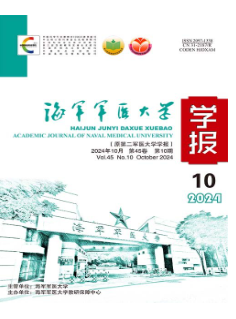Vaginal disinfection before cesarean delivery in preventing postoperative infections:a meta-analysis
Q4 Medicine
引用次数: 0
Abstract
Objective To analyze the efficacy of vaginal disinfection with povidone-iodine before cesarean delivery in preventing postoperative infections.Methods Randomized controlled trials,identified from a systematic search of relevant databases including PubMed,EMBASE,CBM,CNKI,and CQVIP,were screened and evaluated according to standardized criteria.RevMan 5.2software was used to do the meta-analysis.Results A total of 9randomized controlled trials with 3 024 participants,with 1 508 in the vaginal cleansing group and 1 516 in the control group,were included in this meta-analysis.The analysis result showed that vaginal disinfection with povidone-iodine before cesarean delivery reduced the incidence of postcesarean endometritis(RR=0.55,95% CI 0.36-0.85,P =0.007).The incidence of post-cesarean endometritis was significantly reduced in women with ruptured membranes(RR=0.29,95%CI:0.16-0.52,P0.000 1)and women in labor(RR=0.63,95%CI 0.41-0.96,P=0.03),but not significantly reduced in the women with intact membranes(RR=0.73,95%CI 0.50-1.08,P=0.11)or women not in labor(RR=0.79,95%CI 0.53-1.17,P=0.24).Vaginal disinfection could not help to reduce the incidence of postoperative wound infection(RR=0.80,95%CI 0.53-1.22,P=0.30)or postoperative fever(RR=0.92,95%CI 0.76-1.11,P=0.37).Conclusion Vaginal disinfection with povidone-iodine before cesarean delivery can decrease the risk of post-cesarean endometritis,especially for women undergoing cesarean delivery with ruptured membranes or in labor,but vaginal disinfection do not reduce the risk of postoperative wound infection or fever.剖宫产前阴道消毒预防术后感染:荟萃分析
目的分析剖宫产前用聚维酮碘消毒阴道对预防术后感染的效果。方法系统检索PubMed、EMBASE、CBM、CNKI、CQVIP等相关数据库,筛选随机对照试验,按照标准化标准进行评价。采用RevMan 5.2软件进行meta分析。结果共纳入9项随机对照试验3 024例,其中阴道清洁组1 508例,对照组1 516例。分析结果显示,剖宫产前阴道消毒聚维酮碘可降低剖宫产后子宫内膜炎的发生率(RR=0.55,95% CI 0.36 ~ 0.85,P =0.007)。剖宫产后子宫内膜炎的发生率在胎膜破裂妇女(RR=0.29,95%CI:0.16-0.52,P = 0.0001)和产程妇女(RR=0.63,95%CI 0.41-0.96,P=0.03)中显著降低,但在胎膜完整妇女(RR=0.73,95%CI 0.50-1.08,P=0.11)和非产程妇女(RR=0.79,95%CI 0.53-1.17,P=0.24)中无显著降低。阴道消毒不能降低术后创面感染(RR=0.80,95%CI 0.53 ~ 1.22,P=0.30)和术后发热(RR=0.92,95%CI 0.76 ~ 1.11,P=0.37)的发生率。结论剖宫产前阴道消毒聚维酮碘可降低剖宫产后子宫内膜炎的发生风险,尤其是剖宫产伴破膜或产程产妇,但阴道消毒不能降低术后伤口感染和发热的发生风险。
本文章由计算机程序翻译,如有差异,请以英文原文为准。
求助全文
约1分钟内获得全文
求助全文
来源期刊

海军军医大学学报
Medicine-Medicine (all)
CiteScore
0.50
自引率
0.00%
发文量
14752
期刊介绍:
Founded in 1980, Academic Journal of Second Military Medical University(AJSMMU) is sponsored by Second Military Medical University, a well-known medical university in China. AJSMMU is a peer-reviewed biomedical journal,published in Chinese with English abstracts.The journal aims to showcase outstanding research articles from all areas of biology and medicine,including basic medicine(such as biochemistry, microbiology, molecular biology, genetics, etc.),clinical medicine,public health and epidemiology, military medicine,pharmacology and Traditional Chinese Medicine),to publish significant case report, and to provide both perspectives on personal experiences in medicine and reviews of the current state of biology and medicine.
 求助内容:
求助内容: 应助结果提醒方式:
应助结果提醒方式:


